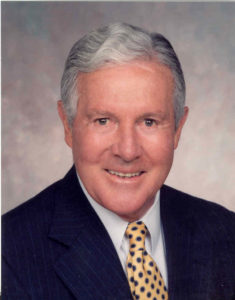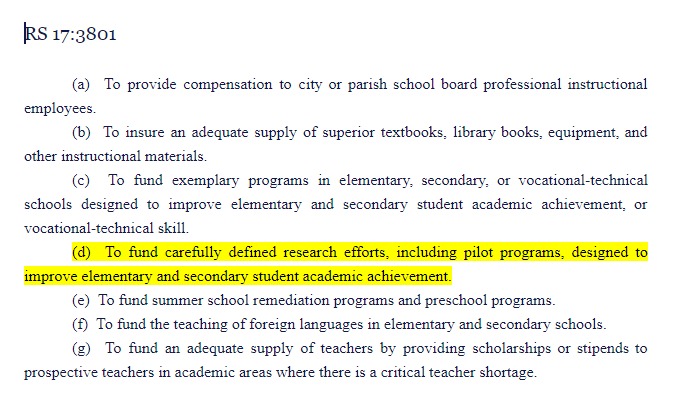

One thing is certain, politics in Louisiana is nothing, if not interesting. One could design a doctorate program around the things that have happened inside the State Capitol.
Kevin P. Reilly Sr. was a colorful legislator who was born in Boston, MA and married into the Lamar Advertising business. He served for 14 years in the Louisiana House of Representatives and held the cherished Chair of the Appropriations Committee until he was removed by Speaker of the House, John Alario, for publicly criticizing Gov. Edwin Edwards who later appointed him Secretary of the Louisiana Department of Economic Development. These days, such behavior from legislators occurs on a daily basis. Things have really changed, haven’t they?
In addition to his antics in the capitol building, Reilly appeared in a 1986 issue of People magazine wearing overalls short enough to expose his ankles and standing next to an old pickup truck with a rifle hanging in the back window. He was quoted as saying, “People in Louisiana are just plain dumb. All it takes to make them happy is a pickup truck and a gun.”
Putting aside his apparent elitist view of Louisiana and its citizens, probably the most notable thing that Reilly did as a legislator was push for, and successfully pass, the Louisiana Education Quality Trust Fund which, after his death in 2012, had his name added to it.
Louisiana was one of several Gulf coast states that received a settlement from the federal government as a result of a lawsuit regarding offshore production of oil and natural gas. After the passage of a constitutional amendment, $505 million from the settlement was dedicated to a permanent trust fund. A second trust was set up to receive investment revenue with 25% of the revenue going back into the permanent trust increasing its size, yearly. The remaining revenue is appropriated to K-12 Education and Higher Education with each receiving 50% of the available funds. The use of the funds is strictly and narrowly defined in the constitution and codified into law under Revised Statute 17:3801. The Board of Elementary and Secondary Education (BESE) is authorized to use its share of the money, which is referred to as 8(g), under the following categories.

As you can see, there are seven (a-g) dedicated constitutional categories under which the funds can be used. I have highlighted (d) because it is the focus of this blog, but the others are worth looking at. (a), (b), (e), (f) and (g) are pretty straight forward. (c) and (d), I think, should be reversed. First, you fund a research project, or pilot program, then if it is worth duplicating, you fund it as exemplary, but the question that comes to mind is what exactly is a “carefully defined research effort,” or “pilot program?”
On page 22 of BESE Bulletin 921, a “research project” is defined as follows:
“Research—a procedure to investigate conditions existing within specific school populations which is structured in accordance with the accepted standards of the American Educational Research Association.”
On page 21 of the same bulletin, a “pilot program” is defined as follows:
“Pilot Program—an educational program which will implement educational procedures, activities, objectives, standards, curricula, methodology, content, and so forth which do not presently exist in the school or school system seeking support funds for the program.”
On pages 26 and 27, a further explanation is given of criteria to be met to qualify for this category.
“Provisions Relative to Research and Pilot Programs Designed to Improve Elementary and Secondary Student Academic Achievement
[Formerly LAC 28:XCIII.729]
- An eligible applicant may receive funding for a program which is limited to educational research. However, any applicant seeking funds for a “pilot program” must either: (a) incorporate a “research component within the pilot program in order to verify that program activities do, in fact, result in improved academic performance; or (b) must include documentation that legitimate research available in the literature already demonstrates that the activities to be implemented in the pilot program have resulted in improved student academic performance.
- The following requirements apply to research to be funded with support fund monies: (a) The activities to be undertaken must meet or exceed the standards established by the American Education Research Association. (b) There must be clear guarantees that the rights of participants will be protected throughout the research activities. (c) There must be a clear correlation between the anticipated results of the research and improved elementary and secondary student academic performance. (d) The applicant must assure that the board will receive interim reports and a comprehensive final report of all research findings.”
In January 2013, Supt. John White presented a new program to BESE that he called “New Schools Incubation (click)” which, under the constitutional category of “Research/Pilot Programs” would establish grant program with a $2 million budget. The program would provide funding to non-profit organizations to train school leaders on how to turnaround failing schools. BESE approved the program without hesitation.
One of the earliest applicants to this grant was New Schools for Baton Rouge (click). The application asks for $650,000 to purchase “professional/tech services.” By clicking the above link, you can see on page 5 of the application document that the plan was to use $146,000 on pre-launch expense for Democracy Prep Charter School, and the remaining $504,000 on training school leaders at a cost of $252 each through Building Excellent Schools (click), another non-profit organization based in Boston, MA. If you do the math, that’s 2,000 leaders for charter schools. Fortunately, because of the drastic budget cuts in 2015 and 2016, the grant contract was cancelled, but not before $100,000 was paid out of it.
Programs such as this one look good on the surface. I mean…who wouldn’i be interested in a program that trains leaders, right? The problem is…it uses funds that are dedicated to another purpose. There is nothing presented in the original criteria of the grant that would qualify it as a “research/pilot program.” In order to do that, it would require that research be involved.
In the last few years, here are some of the programs that have been funded with 8(g) money under questionable constitutional categories since that initial test run of $2 million. This list is not exhaustive.
According to BESE Bulletin 921, an “exemplary program” is one that is “worthy of imitation.” In other words, evidence must exist in the form of a previous program that was completed with success. The $265,700 listed under “exemplary programs” does not fit the criteria. This money was utilized to fund the annual “Teacher Summit” held in New Orleans, as well. School districts used Title II funds to cover travel and other expenses for their teachers to attend the Summit. Now, let’s look at the programs listed under “research/pilot programs.”
- Principal Coaching and TAP Expansion: The money dedicated to K-12 education via the 8(g) fund is intended to inject dollars directly into the classroom where it has the biggest impact. While one constitutional category specifically addresses teacher certifications in shortage areas, nowhere does it mention the training, or certification of principals.
- LEAP 2025: This chart indicates a planned use of $8,200,000 to pay for statewide assessments that are required to be administered by federal law. In no way, whatsoever, does this use of 8(g) funds qualify under a constitutional category. I should also note that 8(g) funds have been used to pay for LEAP 21, PARCC and ACT. Yes. every junior in the state of Louisiana is required to take the ACT, and the state pays for it with 8(g) money.
- Educator Preparation Pilot Program: This program attempts to legitimize itself by including “pilot program” in its title. First, this program is entirely funded by 8(g). Teacher certification is a function of Higher Education which also receives money from this trust. If this were a joint program with shared cost, perhaps it could fly, but it isn’t. In addition, it appears that 8(g) funds are also being used to subsidize certification and graduate programs through The New Teacher Project and Relay Graduate School of Education. In fact, Higher Education rejected the legitimacy of these nonprofit organizations, so in the last regular session, legislation was introduced to move them under the umbrella of BESE along with iTeach. Again, teacher certification is a function of Higher Education. This would be the equivalent of the Department of Health and Hospitals supervising nonprofits that train nurses and doctors.
There is ample evidence that shows that since taking office, Supt. John White has redirected 8(g) funds to programs that do not qualify under the constitutional categories; however, if there were any chance that he would face any legal ramifications, he would simply say that both BESE and the legislature approved it. The question is, knowing that the funds are being misused, will legislators and members of BESE allow it to continue, moving forward?



Is there any other governmental agency/body that has authority to investigate these expenditures? LLA?
You would think that the legislative auditor, attorney general, or inspector general would have an interest.